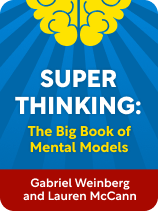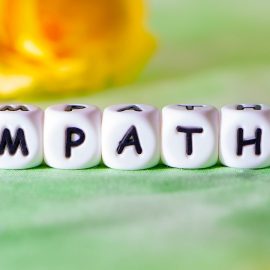

This article is an excerpt from the Shortform book guide to "Super Thinking: The Big Book of Mental Models" by Gabriel Weinberg and Lauren McCann. Shortform has the world's best summaries and analyses of books you should be reading.
Like this article? Sign up for a free trial here.
Should you trust your intuition? Is it true that your gut instinct is always right, as the popular adage goes?
They say that your gut instinct is always right, but it really depends on what the situation is. In circumstances suited for slow, deliberate thinking, making a decision based on a gut feeling or intuition is usually not a good idea.
Here’s how using your intuition can lead you astray.
When Intuition Can Lead You Astray
Should you trust your intuition? When reasoning, we naturally defer to conventional thinking and our intuition, which is our ability to reason subconsciously. However, conventional thinking and intuition are shaped by inflexible assumptions, which means they can be rigid.
For example, the practice of bloodletting–withdrawing someone’s blood for medicinal purposes–was part of conventional medical practice because it fit neatly with Humorism, the theory that we’re composed of four humors (blood, phlegm, black bile, and yellow bile). Since Humorism was an entrenched assumption, it led to a rigid belief in the efficacy of bloodletting for roughly 3,000 years until the practice was largely discredited in the late 1800s.
(Shortform note: In Freakonomics, Steven Levitt and Stephen Dubner argue that we defer to conventional thinking because it’s convenient and allows us to avoid the complexity of the real world. Because conventional thinking is typically founded upon anecdotes, rather than quantitative data, it results in misconceptions. Consequently, they argue, appealing to conventional wisdom often leads us away from truth.)
In light of this rigidity, conventional thinking and intuition can mislead us in situations where they’re inappropriate. For instance, in the case of bloodletting, the conventional assumptions of Humorism misled physicians into harming their patients.
Inappropriate Intuition
To determine whether intuition is inappropriate, Weinberg and McCann use Daniel Kahneman’s model of fast and slow thinking, outlined in Thinking, Fast and Slow. Kahneman distinguishes between fast thinking, where our mind operates quickly and involuntarily (as in doing basic math), and slow thinking, where we reason carefully and deliberately (as in doing calculus).
They argue that we should avoid leaning on intuition in situations suited for slow thinking. For instance, imagine that you’re an American visiting a less-talkative culture, and none of the locals are willing to talk with you. If you rely on intuition, you might incorrectly conclude they’re impolite or rude, when there are simply different norms at play. In this case, use slow thinking to consider these unfamiliar norms instead of making a snap judgment.
(Shortform note: One reason intuition leads us astray in these situations is its tendency to perceive patterns and connections between events, even when there are none. One example of this is gambler’s fallacy, the belief that incidental patterns that happened in the past will hold true in the future. For example, when playing roulette, gambler’s fallacy might cause us to believe that the ball is more likely to land on red if it’s landed on black multiple times in a row. At an extreme, our intuition can lead us to embrace beliefs we know are false; in one study, subjects intuitively held beliefs about probabilities that they knew to be false.)

———End of Preview———
Like what you just read? Read the rest of the world's best book summary and analysis of Gabriel Weinberg and Lauren McCann's "Super Thinking: The Big Book of Mental Models" at Shortform.
Here's what you'll find in our full Super Thinking: The Big Book of Mental Models summary:
- How to elevate your everyday reasoning and decision-making skills
- Why you shouldn't rely on intuition when making decisions
- How to deter you opposition from engaging in conflict






